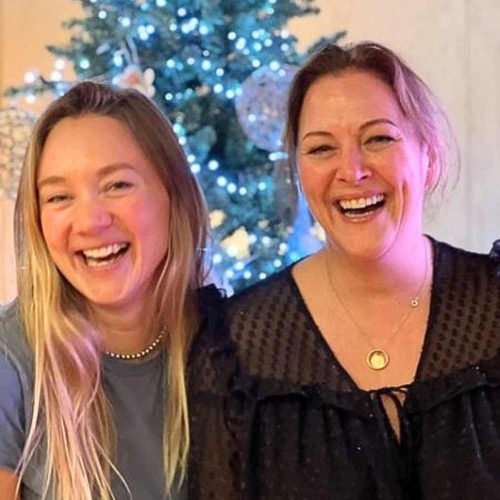5 ways you can master your finances
It’s February and you’re still skint. In this most miserable of months cheer yourself up by plotting your ultimate financial comeback. It’s easier than you think!
IN ASSOCIATION WITH


Always the grimmest of months, this year February is also slathering on Lockdown 3-style boredom and anxiety, not to mention extra financial pressures – just 13% of people are making provision for their financial future right now, according to the Money & Mind report 2020 by Schroders Personal Wealth[AC1].
But there’s no need to reach for the gin and stress ball just yet (OK, we’ll let you off the gin, pour a large one) – one benefit of being confined to home with all this time on our hands is that it’s the perfect opportunity to take stock and plan for better times. Here are 5 simple steps that aim to help you take control of your finances fast.
PLAN
Always been a happy spendthrift, living for the next adventure or fancy meal out? Now might be the time to focus on the future and, y’know, actually having some money to enjoy it! Covid 19 has brought financial insecurity into sharp focus – nearly 20% of us consider it a higher priority now (Money & Mind 2020[AC2] , Schroders Personal Wealth), and nearly half admit that their financial situation causes stress.

“Seizing control and starting that planning process is crucial,’” says Jo Perry-Taylor, regional director at Schroders Personal Wealth. “Gather all your financial information together – how much you spend each month; what’s left to repay on your mortgage; any debts; what’s in your pension pots (or not). Work out what you need to retire comfortably – according to the report 63% of people in the UK don’t know the answer to this question! – and talk to a professional about how you could potentially get there. An initial meeting is often free of charge, so you have nothing to lose.”
STREAMLINE

I worked out a few years back that my gym membership cost me £250 per visit. Shamefully, I’d gone twice across the whole year. Even worse, it took me another six months on discovering this to remember to cancel it. Some subscriptions and memberships come with great personal intentions (that £500 fitness investment was meant to deliver a 2 stone weight loss and a celebrity boyfriend – a double epic fail). Others arrive with stealth – anyone else signed up for a trial and forgotten to cancel before payment started? And most often they hang around lazily – the effort v return ratio not being quite high enough to reverse the Direct Debit or shop around for a better offer.
But all these regular payments could add up to significant savings. “Go through your bank accounts, identify the regular chargers, from gyms to streaming services, subscriptions to insurances, and work out what you really need,” says Jo. Some annual costs, such as some insurance policies renew automatically but you might not be getting the best deal.”
Basically make like all the best meerkats and compare the market, then streamline – you could save a small fortune and you’ll also feel more in control of your outgoings.
RESEARCH

According to Finder.com as at December 2020, the average price of household bills for a year is £19500, and the Money Advice Service estimates that you could save at least £300 a year by taking a look at household bills and switching energy suppliers. Bank charges, mortgage interest and insurances are also rich pickings for savings, and there are plenty of websites to easily compare prices for you. Sometimes loyalty doesn’t pay, and it can be cheaper to switch to a new provider (they often have new client offers), or you could go back to the original provider, and haggle your way to a better deal.
THINK
What makes you happy? (no need to mention Regé-Jean Page in Episode 5 of Bridgerton, that’s a given). Many of us skate through life a bit mindlessly don’t we – it’s no accident that the famous mid-life crisis involves the realisation that “this is not what I want any more”.

One of the best things you can do for your financial wellbeing is to understand what you most enjoy in life, and plan your financial future based around these objectives. Maybe that’s a luxury ski holiday every year, buying a sports car, moving to the coast, retraining to do something you love or helping your family financially. But knowing what makes you happy could help you make the right financial decisions.

“Draw up a life plan for yourself and plot key life events that you’re expecting or hoping to happen and that will require a financial commitment. Then work out what age you want to be when these events happen,” says Jo. “When do you want to marry? Have kids? Go on a sabbatical? Retire? Estimate the potential cost of each event – a professional advisor could help with this and help you plan ways which aim to achieve your goal, or there are online tools that can give you an initial framework for your calculations.”
DE-STRESS

Nearly half of all UK adults admit feeling regularly or occasionally anxious or overwhelmed because of their financial situation (Money and Mind 2020 , Schroders Personal Wealth,) and it’s a particularly scary story for women – according to the report only 35% of women in their late 50s are on track to reach their pension goals, leaving the remaining 65% struggling with financial pressures.
Schroders research has revealed that the Top 3 ways to potentially achieve financial piece of mind are being 1) debt free, 2) in a position to save and 3) making sure family members have enough money in the event of a tragedy. So how do solve 1, 2, 3?
“Understanding your financial position, streamlining and then consolidating your debts with the lowest interest and best terms is step one, “says Jo. “Once you’ve cleared credit cards and other debts, you might set up a cash buffer to last you in case income stops – this will help alleviate financial problems and the stress that comes with them,” says Jo. “The Money Advice Service can advise you on how much you may need in emergency savings.
“If you’re worried about looking after your family, it’s worth considering life insurance – 42% of people with a mortgage have no life insurance in place (Finder.com, 14 July 2020). It’s also worth contemplating what is actually important to you. Do you really need such a big house? Can you do without a second car? Smart ‘downsizing’ decisions may well give your finances the uplift that means you can live stress-free in the future.”
Want to get a better grip on your finances? Visit Schroders Personal Wealth for useful information, contact details and to see the latest SPW webinars and insights.
You may also like

















